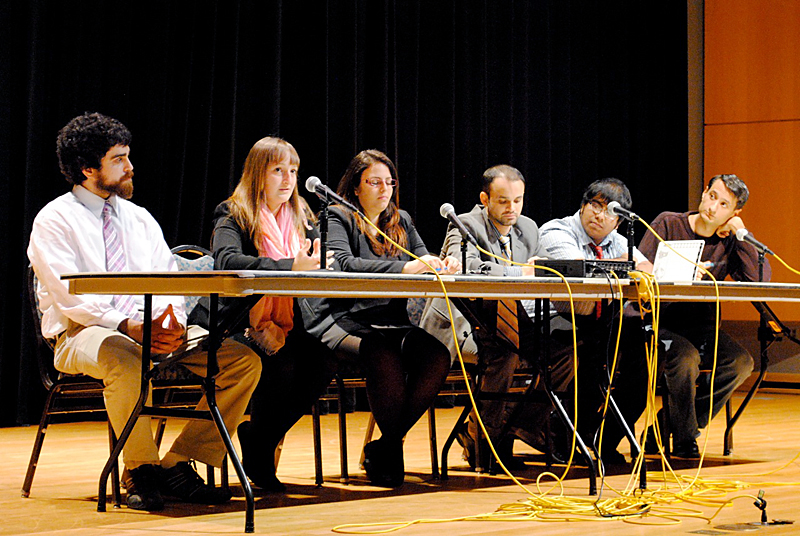The Middle Eastern Student Association hosted a panel discussion about issues and conflicts in the Middle East Nov. 13. The panel included six alumni and graduate students of the College of William and Mary who discussed their views on what is happening in the Middle East. Club President Teymour Moinzadeh ’14 posed four questions to the six panelists regarding the Middle East to target their views.
The panelists opened with a discussion about the racial profiling that has occurred at airports following the events of 9/11.
“I believe that ethnic profiling by the government has one purpose — to break people apart. We, as a society, actually allow this,” Fulbright Scholar and Arabic House tutor Raneen Abu Khadra said.
Vahid Dejwakh J.D. ’15 expanded on the issue.
“You might not be of the minority being targeted, but it is important to still stand up for each other’s rights because when one minority is targeted, all minorities are targeted,” Dejwakh said, “I would like to see a change in the concept of what an American is. We are Americans no matter where we are from. We are all here in this country together. I do not think racial profiling is acceptable in any situation.”
The panelists voiced their opinions about the protests advocating for democracy in the Middle East. Atif Chodbury J.D. ’15 , who has been interested in Middle Eastern relations his entire life, feels the countries in the Middle East have their own reasons for protesting.
“Different people revolt for different reasons,” Chodbury said. “They want the same things as we do. Many countries have never had an election, and they are fighting and dying just to have that. I think we [the United States] can take the time to connect with them.”
Mohammad Torabinejad ’11 believes the people in the Middle East are transitioning and need time to adjust.
“Democracy takes time and we have to let societies and countries deal with that in a way that respects their views,” Torabinejad said.
Panelists discussed whether the United States should intervene in conflicted countries like Syria.
Dejwakh feels that the United States should take a hands-off approach to the conflicts in the Middle East.
“I think on one side we want to see the [United States] play the international police,” Deiwakh said. “However, the world might be better if the [United States] took a step back and let other countries evolve.”
Chodbury expressed his desire for action in between getting involved and taking a step back.
“We are involved in the Israel and Palestine conflicts,” Chodbury said. “We have the leverage over Israel to push them to change their policies; however, we don’t have to put our men and women in uniform in danger every time a massacre happens. We have to be practical but proactive.”
Khadra’s felt differently, stating that the United States should have complete involvement in Middle Eastern conflicts.
“Whatever happens in the Middle East affects the [United States]. Reforming to [U.S.] foreign policy affects the Middle East,” Khadra said. “However, the [United States] will have to better study the matters going on in the Middle East as opposed to how they did after 9/11.”
Peace in the Middle East Week continues with more festivities including movie showings, concerts, political talks and bake sales, all to promote the culture of the Middle East.
“We wanted people who were not that much older than us to talk to show that they are involved, so that other students can realize that they can get involved, too,” Moinzadeh said.

